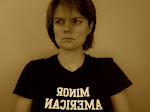Paul de Man’s essay “Excuses (Confessions)” is a reading of Rousseau’s Confessions.
Something I can understand: a reading. de Man states that he will, regarding this particular reading of Rousseau’s Confessions, “attempt to clarify the relationship between critical procedures that start out from the discourse of the subject and procedures that start out from political statements,” and so I will say that is my attempt, as well (278). For the purpose of this series in progress, I will here name specifically the subject as 'speaker' and the political 'autobiography.' de Man states that :
the Confessions are not primarily a confessional text. To confess is to overcome guilt and shame in the name of truth: it is an epistemological use of language in which ethical values of good and evil are superseded by values of truth and falsehood…(279)
This statement is useful to me regarding autobiography and confession, as my text (the text I have chosen to use in order to apply the instruction I have received from the text of Paul de Man) is called an autobiography and is, essentially, a confession. I want to explore, in as much depth as possible, the question of whether or not confession is* inherent to autobiography, and also, if confession is inherently didactic.* That is, as far as I know right now in the writing of this series, where my interest resides.
[In my effort to understand de Man I feel the need to follow, to the best of my ability, de Man’s instruction, and so I will closely read de Man’s essay while also operating upon my chosen confessional text. At least, this is the plan. As per the order of de Man’s essay I must now orient you, my reader, with my chosen text here:]
What does it mean to confess? According to de Man above “[t]o confess is to overcome guilt and shame in the name of truth….” What is key here, I think, is the word overcome, there must be a deliberate effort made on the part of the confessor to defeat guilt and shame. The achievement of this defeat over guilt and shame is the reinstitution of “the economy of ethical balance” and the cleansing of the slate, so to speak, of “the atmosphere of a truth that does not hesitate to reveal the crime in all its horror” (279). Having determined the meaning of to confess, I see a division in autobiography, that confession is not synonymous with autobiography, but can be contained within autobiography, as not every autobiography can be said to achieve this “economy of ethical balance.” I am tempted, however, to state that every autobiography pretends to achieve this state, or wishes to achieve this state, as the writing of one’s history gives the reader of the history a specific presentation, one that seems to claim, by the mere name: autobiography, a perspective that is just: the writing of one’s own history. Now I will pause to identify a text:
Among the many possible Orestes A. Brownsons there could have been : the Unitarian, the Transcendentalist, and the Catholic [not to mention the politician, the man, the father, etc], only one chose to write The Spirit-Rapper, An Autobiography in 1854. In 1854 Brownson was a converted Catholic. [This is not necessary information. I will start again:]
Brownson’s The Spirit-Rapper, An Autobiography is a written account of a man’s life spent sacrificing God for Science. In fact, he substitutes God for Science. In this autobiography our narrator becomes involved in the practice of animal magnetism, or mesmerism, as a means to achieving his deep desired goal of understanding the nature of all things. He is offered these answers, and the power these answers seemingly contain, by his table, which he has mesmerized and which has learned to communicate with him through rapping on the floor in a sort of Morse code.
"I held a long dialogue with the table, which, however, I shall not record. I ascertained the origin of the raps, how to produce them, and how to read them. But this was but a trifle. I would have the power visible to my eyes, submissive to my orders, and speak to me in plain and intelligible language, properly so called. I obtained a promise that this should come in due time, but that for the present I must suffer the force to remain invisible, and be content with a language of mere arbitrary signs. (Brownson 41)"
Here I must pause in order to determine meaning.
Brownson uses several words I want to discuss: dialogue, table, record, read, language, and the term ‘arbitrary signs’.
Saturday, March 25, 2006
Subscribe to:
Post Comments (Atom)


No comments:
Post a Comment